|
At the heart of bioresource utilization study is the microbial resources. Culture collections or Biological Resource Centres (BRCs) serve as essential facilities to collect and preserve these biological assets and make them available to scientists to investigate for their applications.
Generally, there are two types of culture collections or BRCs in ASEAN, particularly members of AnMicro:
- Service collections or public collections: These collections provide depository and distribution services of biological materials to scientists for research and other uses.
- Institutional collections: Operational model of these collections varies. Some collections provide depository and distribution services only to scientists within their organizations or their collaborators; whereas others may provide only distribution service, not depository service, to scientists outside their organizations.
The following are culture collections in ASEAN which join ASEAN Microbial Database (AmiBase) Partnership program and help contribute data to AmiBase.
|
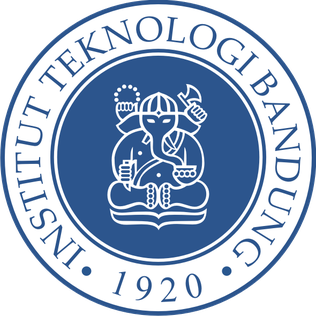
|
Bandung Culture Collection
Bandung Culture Collection (BCC) belongs to School of Life Science and Technology, Bandung Institute of Technology. BCC manages collections for bacteria and fungi, supporting academic, health, food and industries and used in microbiology laboratories in Indonesia. The strains represent many different species isolated from specific samples and widespread geographical locations. Some of these strains have antimicrobial activities and others have important role in food fermentation. The collection was recently established with the total of 140 deposits. It is continuously expanding as a result of new research collaboration initiated by the internal research community.
|
 |
Indonesian Culture Collection
Indonesian Culture Collection (InaCC) is a national depository for microorganisms (Culture Collection of Microorganism), under the management of Microbiology Division, Research Centre for Biology, the Indonesian Institute of Sciences (LIPI). InaCC holds living collections of filamentous fungi (mold), yeast, bacteria, actinomycetes, archaea, microalgae, and bacteriophage having important taxonomical data and physiological characters of mediating bio-processes in food, health, pesticide, fertiliser, and bioremediation for improving the quality of human life. In general, InaCC supports scientific community and other activities including research, microbial depository activities, microbial distribution activities and microbial-related services. InaCC serves Indonesian and international clients for identifying microorganisms and other microbiological analyses. Management system of InaCC is based on the World Federation of Culture Collection (WFCC) standards and integrated with quality management system of ISO 9001:2015.
|
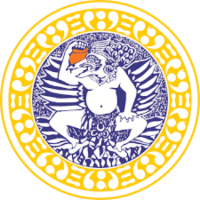 |
Universitas Airlangga Collection Culture
Universitas Airlangga Collection Culture (UACC) is part of the Faculty of Science and Technology under the authority of Universitas Airlangga. UACC was established in 2018 with the initiation of Universitas Airlangga researchers, with the purpose to preserve microbes (bacteria, yeast, and fungi) that have been isolated by researchers from Universitas Airlangga and others. The head of UACC is Dr. Ni’matuzahroh who is lecturer and researcher at Biology Department, Faculty of Science and Technology, Universitas Airlangga. Activities carried out by UACC include isolation, characterisation, potential testing, identification, storage and maintenance, microbial distribution, and microbial data collection.
|
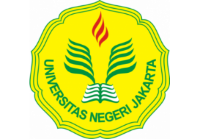 |
Universitas Negeri Jakarta Culture Collection
For additional information or contacts of above culture collections, please contact ACMU secretariat
|
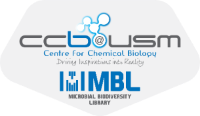 |
Centre for Chemical Biology-Microbial Biodiversity Library
Since the isolation of the first strain in 2009, the microbial collection in Centre for Chemical Biology (CCB) has grown. An initiative to characterise and catalogue the collection started in 2013, leading to the establishment of the CCB-Microbial Biodiversity Library (CCB-MBL), with the following core objectives:
- To house microorganisms from diverse Malaysia niches, especially from mangrove and marine environments. - To study isolates with potential application in chemical biology.
- To share the collection with researchers, educators, and relevant industries.
In February 2018, the catalogue was made available online on its website. Its collections are indexed and made searchable by the Global Catalogue of Microorganisms. Isolates are obtained from various sources, with emphasis on aquatic and coastal ecosystems. These isolates are usually part of research projects on secondary metabolites, genomics, and chemical biology.
|
 |
Forest Research Institute Malaysia (FRIM) is one of the leading institutions in tropical forestry research in the world. The FRIM Microbial Culture Collection (FRIM-MCC) is a unique bioresource collection facility established in 2009 by the Natural Products Division of FRIM. The facility holds a collection of cryopreserved culture stocks of more than 10,000 isolates of actinobacteria and bacteria (risk groups 1 and 2). The cultures were originally isolated using proprietary methods from natural resources such as forest soil, mangrove sediments and plant samples collected from various locations throughout Peninsular Malaysia. The FRIM-MCC collection is registered with the World Data Centre for Microorganisms (WDCM No. 1129) in July 2016. It is also registered as a participant of WDCM’s Global Catalogue of Microorganisms (GCM) which provides the platform to assist FRIM-MCC to publish its online catalogue of microorganisms.
|
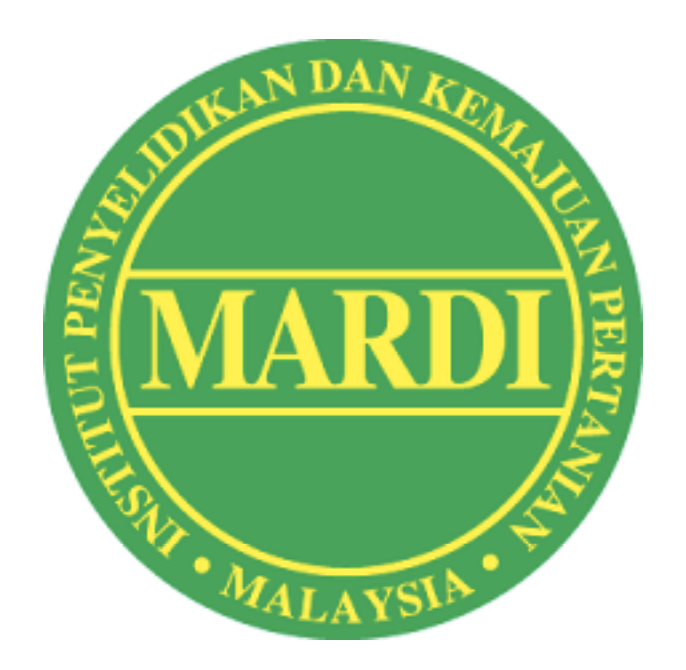 |
MARDI Microbial Culture Collection (MMCC) was officially formed in 2016 at MARDI Headquarters in Serdang. The functions of MMCC are to preserve and to maintain copies of microorganism strain available in MARDI and other institutions in Malaysia. Our collection centre maintains cultures in our collection and keeps the data of the culture such as strain source, characterization, benefit etc. Our vision is to be the trusted provider of microbes not just in Malaysia but other part of the world.
|
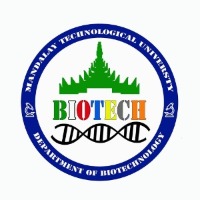 |
Culture Collection Unit, Mandalay Technological University
Culture Collection Unit of Mandalay Technological University was established in 2015, under the purview of the Department of Biotechnology (DBT). The collection contains microbial strains isolated by researchers and postgraduate students of the university. DBT welcomes the notions of sharing its microbial database and establishing research collaboration with national and international organisations.
|
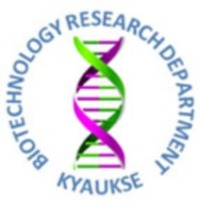 |
Myanmar Microbial Culture Collection
Myanmar Microbial Culture Collection is a unit of Biotechnology Research Department (BRD), part of the Department of Research and Innovation (DRI) under the Ministry of Education.
|
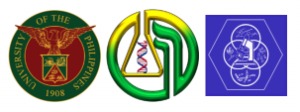 |
Philippine National Collection of Microorganisms (PNCM)
The Philippine National Collection of Microorganisms (PNCM) is the national repository of microbial strains in the Philippines. It traces its origins to the Microbial Culture Collection (MCC) of the National Institute of Molecular Biology and Biotechnology (BIOTECH) at the University of the Philippines Los Baños in Laguna Province. The PNCM is the biggest general culture collection in the country. It maintains a total of over 4,000 strains of bacteria, yeast, molds and algae that use either of the two preservation methods: overlay with sterile mineral oil, ultra-low temperature storage with glycerol, liquid drying (L-drying), storage in sterile soil or water.
|
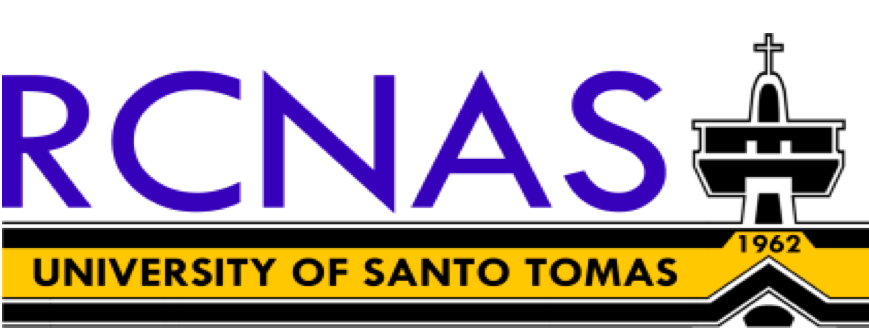 |
University of Santo Tomas Collection of Microbial Strains
The University of Santo Tomas Collection of Microbial Strains (USTCMS) offers a unique collection of indigenous, clinical and biotechnological microbial strains. It maintains locally isolated marine luminous bacteria, clinical bacterial isolates, filamentous fungi and yeasts of terrestrial and marine origin, microalgae and Streptomyces. Formally established in 2003 with the launch of its first edition catalogue, it is presently located at the 3rd floor of the Research Centre for the Natural and Applied Sciences, Thomas Aquinas Research Complex, University of Santo Tomas in Manila. In 2004, the UST CMS joined the Philippine Network of Microbial Culture Collections (PNMCC). The USTCMS also offers other microbiological services such as food and water analysis and antimicrobial assays to students, researchers, and academicians. It provides training courses and seminar-workshops to local community engaged in the utilisation of microorganisms and microbiological processes. It likewise offers consultation services in the field of microbiology to the UST collegiate and medical communities as well as interested parties from the Philippine private and public education sectors. At present, USTCMS is a proud member of the World Federation of Culture Collections (WFCC) and Asian Consortium for the Conservation and Sustainable Use of Microbial Resources (ACM).
|
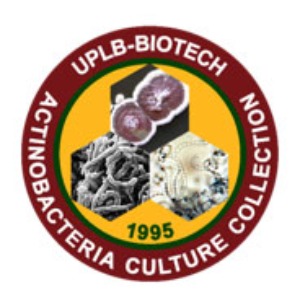 |
UPLB-BIOTECH Actinobacteria Culture Collection
The UPLB-BIOTECH Actinobacteria Culture Collection (UBACC) (300+) was initially established as a collection of the Antibiotic Production Laboratory in 1995. The collection is focused on Actinobacteria due to its research interest on antimicrobials and biocontrol agents. Its isolates came from soil samples from environments such as mangroves, caves, mining sites and agricultural lands. Most samples have been characterised in terms of their antimicrobial property against MRSA, S. aureus, E. coli, K. pneumoniae, P. aeruginosa, Candida albicans, Enterobacter aerogenes, and biocontrol potential against Fusarium oxysporum and Ralstonia solanacearum. The actinobacteria collection is preserved in sterile soil, YMA slants in sterile mineral oil and some are lyophilised.
|
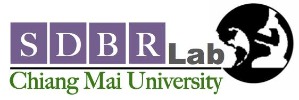 |
Centre of Excellence in Microbial Diversity and Sustainable Utilisation, formerly Sustainable Development of Biological Resources Laboratory (SDBR), operates under the jurisdiction of the Faculty of Science, Chiang Mai University. SDBR aims to collect and maintain microorganisms for in-house research to find valuable products such as bioactive compounds, enzymes, and antioxidants. Moreover, the SDBR also provides services as well as training, identification, and deposit to public, including a distribution service via TBRC online catalog. Currently, approximately 75 percent of SDBR collections are filamentous fungi, which are taxonomically diverse. The largest group is those isolated from plants (endophytic and pathogenic fungi).
|
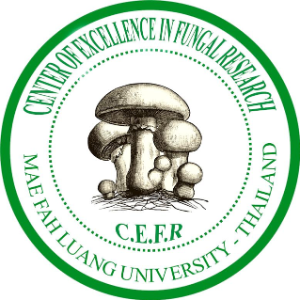 |
Mae Fah Luang Culture Collection
Mae Fah Luang University Culture Collection (MFLUCC) was established in 2010, in order to provide a repository for cultures not only in Thailand, but also from other countries such as China, Italy, Russia, Ukraine, United Kingdom and Uzbekistan. MFLUCC holds more than 7,000 cultures and among them more than 2,000 are type cultures. MFLUCC is the second largest culture collection in Thailand.
|
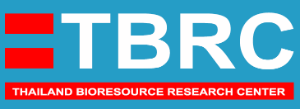 |
Thailand Bioresource Research Center
Established on February 20th, 2015, Thailand Bioresource Research Centre (TBRC) operates under the jurisdiction of the National Centre for Genetic Engineering and Biotechnology (BIOTEC), the National Science and Technology Development Agency (NSTDA). TBRC serves as a non-profit centre to preserve, provide and facilitate the coordination of exchange of biological information and resources and develop mechanisms enabled by information technologies to broaden access to biomaterials to the public and scientific community. TBRC also provides quality technical services and supports that meet international standard practices. TBRC has established strong network with more than 60 departments from leading universities and companies in Thailand and with more than 10 research institutes in ASEAN as well as with leading national and international networks. Utilising a common network serving the entire country and ASEAN region, TBRC network helps lower the bioresource centres’ cost of investments in online distribution services.
|
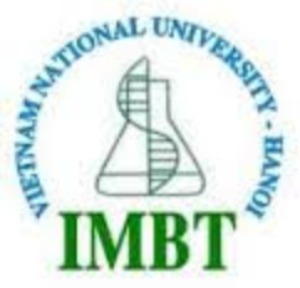 |
Vietnam Type Culture Collection
Vietnam Type Culture Collection (VTCC) was established in 1996 at the Institute of Microbiology and Biotechnology (IMBT), Vietnam National University, Hanoi. VTCC is currently holding 9,697 microbial cultures including bacteria, actinomycetes, fungi and yeasts. Since the establishment, VTCC has been conducting activities in both culture collection management and R&D to match the current demand for biotechnology development. The missions of VTCC include:
- Basic research and applied research in the field of microbiology and technology. - Production and testing of applied products from microorganisms and biotechnology
- Consulting, training, technology transferring and implementation of services of science and technology in the field of microbiology and biotechnology
|
For additional information or contacts of above culture collections, please contact ACMU secretariat
|